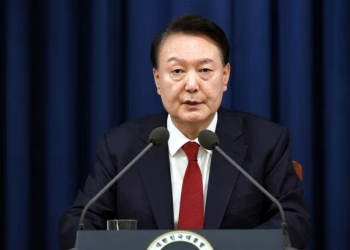The two-thirds gender principle has faced a setback as MPs have suggested postponing the implementation of the top-up plan proposed by the National Dialogue Committee (Nadco).
The task force on the two-thirds gender rule recommended that this top-up be enacted in the current Parliament. Proposed constitutional amendments to Articles 97 and 98 aimed to ensure that no more than two-thirds of MPs belong to the same gender. New clauses were added to stipulate that if an election fails to meet the gender requirements, parties should fill the extra special seats.
Proponents suggested that the Independent Electoral and Boundaries Commission (IEBC) enforce the new law immediately and incorporate the new members into the current Parliament. This would mean at least 53 individuals would need to be nominated to the National Assembly and two to the Senate to address the gender imbalance.
However, the National Assembly’s Justice and Legal Affairs Committee rejected the proposal for immediate implementation, labeling it “overly ambitious.” The committee noted that such a proposal would create significant challenges in executing during the current parliamentary term. Tharaka MP Gitonga Murugara emphasized that it would be more feasible to implement these changes after the current Parliament’s term.
Rarieda MP Otiende Amollo indicated that the proposed changes might necessitate a referendum, as they impact the sovereignty of the people by potentially expanding the membership of both Houses through top-up seats.
Pending a decision from the MPs in plenary, this recommendation may disappoint many women who were anticipating these seats. The task force had suggested additional nominations to the National Assembly and Senate, with eligible parties proportionately nominating MPs.
Currently, the National Assembly has 81 women and 268 men, representing 23.2% and 76.8%, respectively. The Senate comprises 21 women and 46 men, meaning only two more women are needed to meet the gender requirement.
The task force proposed using zebra party lists for gender top-ups after each election. If no women are elected, they estimated that 104 additional women could be nominated to the National Assembly and seven to the Senate, increasing the National Assembly’s size to 453 members and the Senate to 74, thus raising the wage bill.
If the gender top-ups are approved, the salary cost (excluding allowances) would rise from Sh832 million to Sh906 million for 453 MPs, who receive benefits such as car loans, mortgages, and comprehensive health coverage for their families.
The allocation of the additional 104 women would be managed by the IEBC in proportion to each party’s representation in the relevant house. The team led by Daisy Amadany and PS Anne Wangombe reviewed ten scenarios before deciding on the top-up as a viable solution.
The ongoing issues surrounding the two-thirds gender rule have also affected persons with disabilities, youth, marginalized groups, and minorities. Despite various attempts, Parliament has struggled to implement the two-thirds rule. Former Chief Justice David Maraga had previously advised the then-President Uhuru Kenyatta to dissolve the 12th Parliament for violating the gender law. Other proposed solutions included doubling or tripling the number of Woman MPs or proportionally increasing seats.















